July 1, 2025 | 08:17 GMT +7
July 1, 2025 | 08:17 GMT +7
Hotline: 0913.378.918
July 1, 2025 | 08:17 GMT +7
Hotline: 0913.378.918
On June 27, the Department of Cooperative Economy and Rural Development (Ministry of Agriculture and Environment) held a seminar in partnership with the German Agency for International Cooperation (GIZ) to explore potential solutions for developing agricultural insurance in the Mekong Delta region.
The event's objective was to identify policy bottlenecks and suggest additional measures to enhance and broaden agricultural insurance in this critical agricultural center.
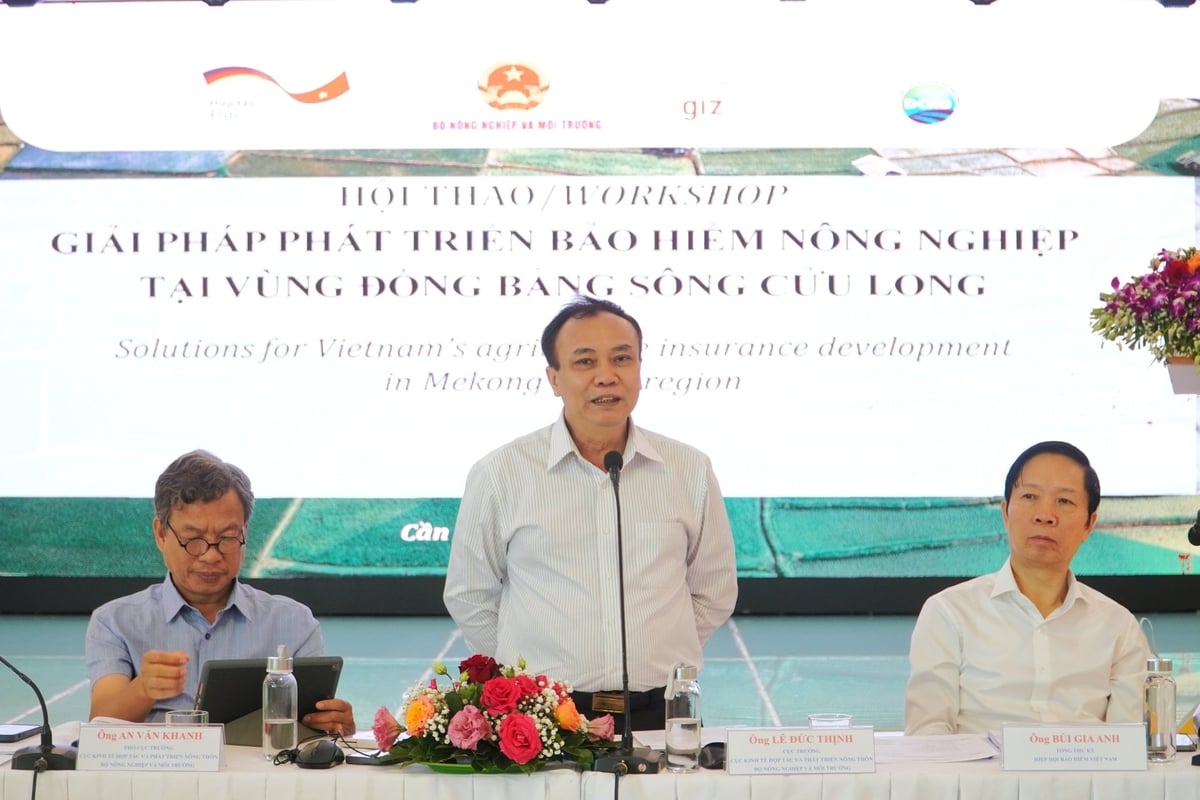
Mr. Le Duc Thinh - Director of the Department of Economic Cooperation and Rural Development (Ministry of Agriculture and Environment) chaired the Workshop on Solutions for Developing Agricultural Insurance in the Mekong Delta. Photo: Kim Anh.
Agricultural insurance is a technical-economic tool designed to reduce production risks and enhance farmers' resilience to natural disasters and disease outbreaks. Nevertheless, the model has been essentially underutilized for over six years since Decree No. 58/2018/ND-CP on agricultural insurance was issued. Fewer than 17,000 farming households have enrolled thus far, with the majority of applications taking place in a handful of northern and central provinces. The premiums generated amount to a mere VND 6.9 billion, which accounts for less than 0.1% of the total insurance market revenue.
Starting with rice, agricultural insurance was initially piloted in Nam Dinh province between 1982 and 1984, according to Mr. Bui Gia Anh, Secretary-General of the Vietnam Insurance Association. Since that time, the programs have maintained a small scale and have seen minimal farmer participation. However, payout rates have increased by 110–300%, presenting insurers with substantial financial risks. Despite the sector's high expectations, these obstacles have impeded its expansion.
Agricultural insurance has yet to significantly impact the Mekong Delta, despite its status as Vietnam's agricultural heartland.
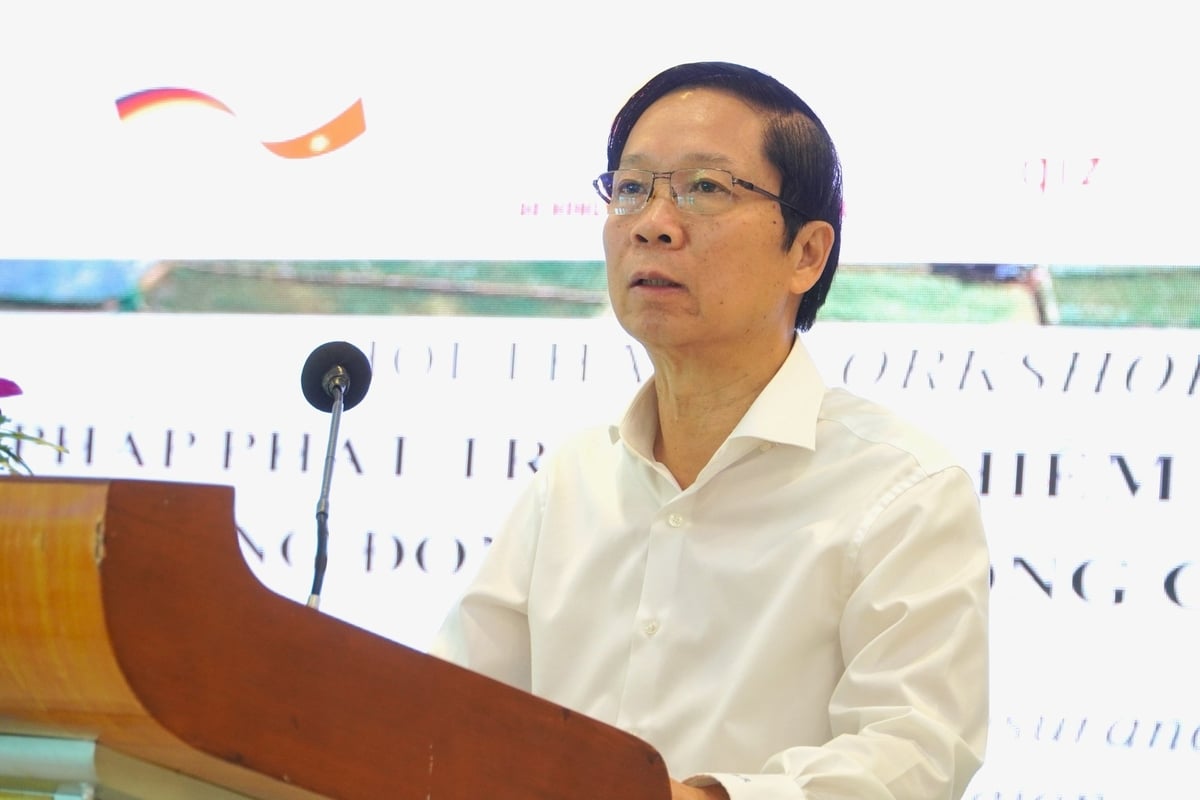
Mr. Bui Gia Anh - General Secretary of the Vietnam Insurance Association shared about challenges and solutions to promote the development of agricultural insurance. Photo: Kim Anh.
Mr. Le Duc Thinh, Director of the Department of Cooperative Economy and Rural Development, observed that the insurance and agriculture sectors are "operating in parallel". The agricultural sector has yet to provide the requisite inputs, despite the fact that insurers require data on weather, risks, and yield fluctuations.
An example of this is the Truong Thanh Agricultural Cooperative in Truong Xuan commune, Thap Muoi district, Dong Thap province, where 32 members are executing a high-quality and low-emission rice production model in accordance with green development objectives.
Nine cooperative members have acquired weather index insurance, covering 30 hectares, due to the region's susceptibility to climate change, particularly erratic heavy rainfall that can cause flooding and crop damage.
Nevertheless, the insurance product is dependent on predetermined weather indices that are obtained from surveillance stations or satellite data, as per Mr. Huynh Thien Tin, Director of Truong Thanh Cooperative. Automatic payments are initiated when thresholds are exceeded without the necessity of presenting evidence of actual losses. However, the compensation trigger, which is 200mm of rain over five consecutive days or 225mm over seven, exceeds the typical rainfall levels in Dong Thap, rendering payouts exceedingly uncommon. Therefore, despite insurers' endeavors to provide policies, numerous farmers continue to exhibit apprehension.
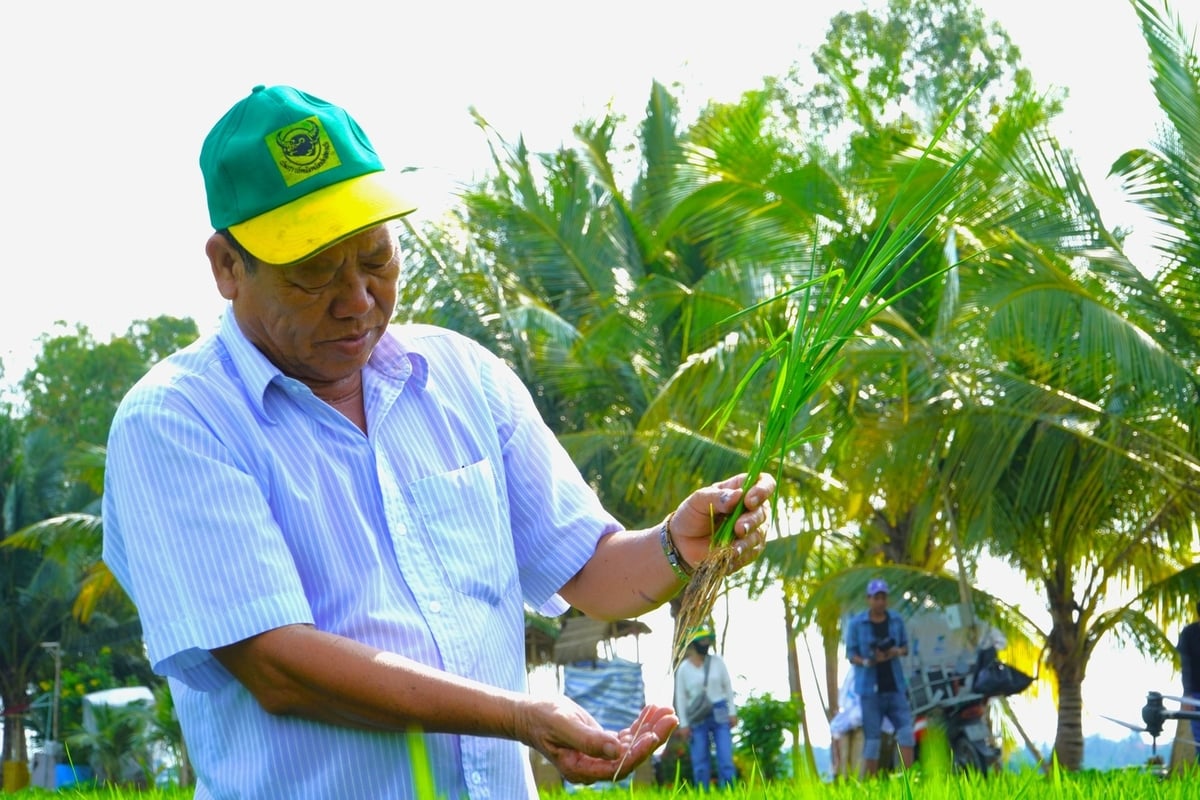
The implementation of agricultural insurance in the Mekong Delta has not yet achieved the expected results. Photo: Kim Anh.
Insurance is a crucial component of protecting rural livelihoods in the face of increasing risks from disease, climate change, and rising competition in the quality of agricultural products. Nevertheless, the existing policy framework is unappealing and fails to satisfy the expectations of both providers and beneficiaries.
Agricultural insurance is still not adequately integrated with credit services, production chains, or digital technology, which are essential components of a sustainable, efficient, and modern insurance ecosystem.
To solve this issue, Mr. Bui Gia Anh advocated for the ongoing enhancement of the legal framework to establish enabling conditions that would encourage farmers, businesses, and insurers to engage more actively.
He also urged the government to develop a comprehensive and accurate agricultural insurance database, including market information, claims history, and loss data by region and crop. More importantly, insurers should have greater confidence in entering the market by assigning a dedicated agency to administer and share this data.
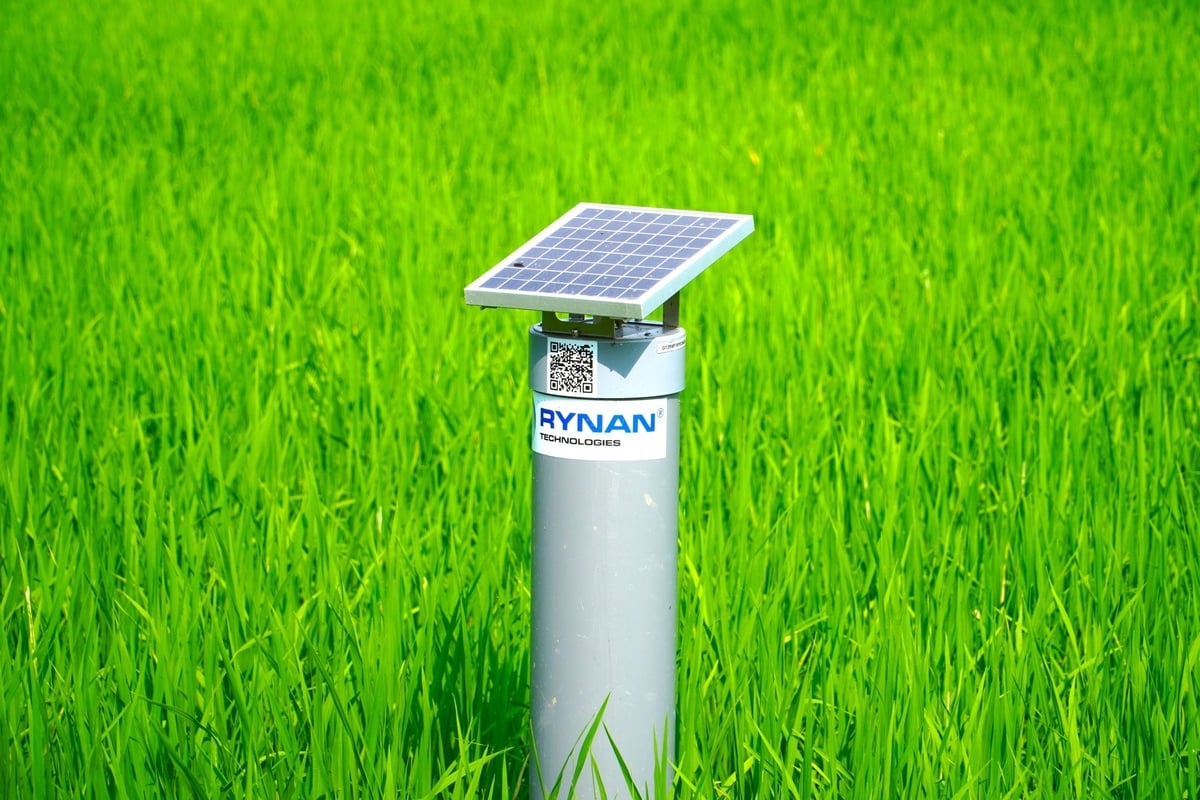
Investing in meteorological, productivity, and disease data systems helps insurance companies design products that are closer to reality. Photo: Kim Anh.
Government agencies and insurance providers must also collaborate to organize training programs to enhance the capacity of insurance firm staff and local authorities engaged in implementing agricultural insurance.
Recognizing agricultural insurance as vital to the development of agriculture, rural areas, and farmers, the Secretary-General of the Vietnam Insurance Association emphasized the need for a coordinated mechanism to mobilize support from across the political system, from ministries to local governments. Public awareness can only be increased and agricultural insurance can be established as a solid foundation for sustainable farming in the Mekong Delta, rather than a "missing piece".
Translated by Linh Linh
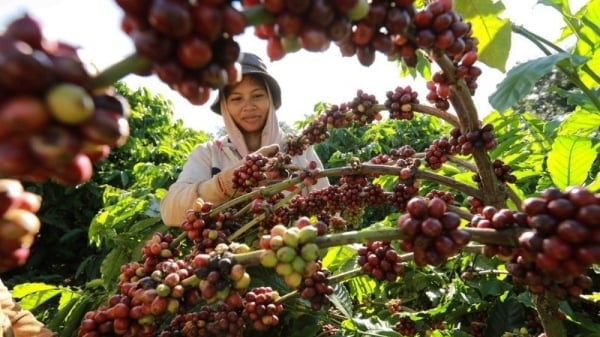
(VAN) To comply with the EU Deforestation Regulation (EUDR), Vietnam is accelerating the development of a national data system. This will guarantee that coffee, rubber, and wood exports continue without interruption upon the regulation's implementation.

(VAN) Organizations and individuals wishing to participate in forest carbon credit trading will follow the new regulations on forest carbon sequestration services.
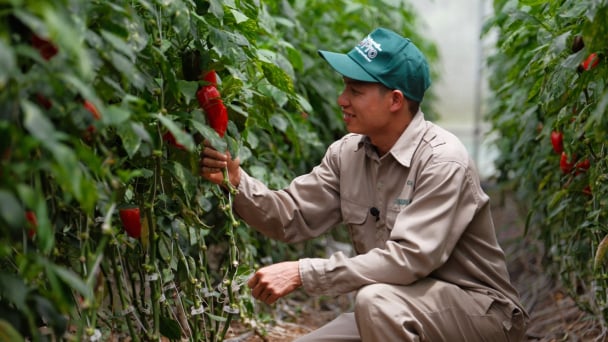
(VAN) Reducing emissions from agricultural and food production is a potential solution for Vietnam to implement its Nationally Determined Contribution (NDC) 3.0.
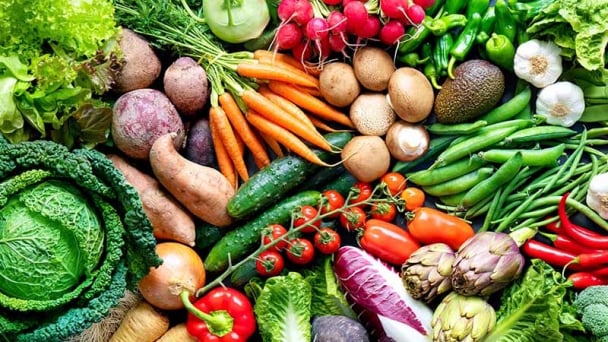
(VAN) The national action plan for food system transformation needs to align with the decentralization requirements under Vietnam's upcoming two-tier government model.

(VAN) The Food and Agriculture Organization’s Strategic Framework and its Science and Innovation Strategy make a simple case: solving systemic problems requires systemic solutions.
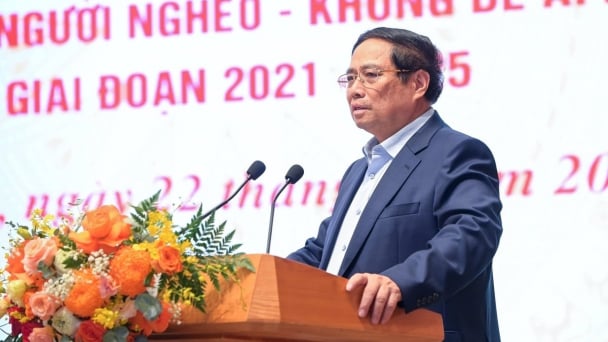
(VAN) Vietnam's national goal programs have effectively mobilized the combined strength of agriculture, farmers, and rural areas, thereby enhancing the material and spiritual well-being of the Vietnamese populace.